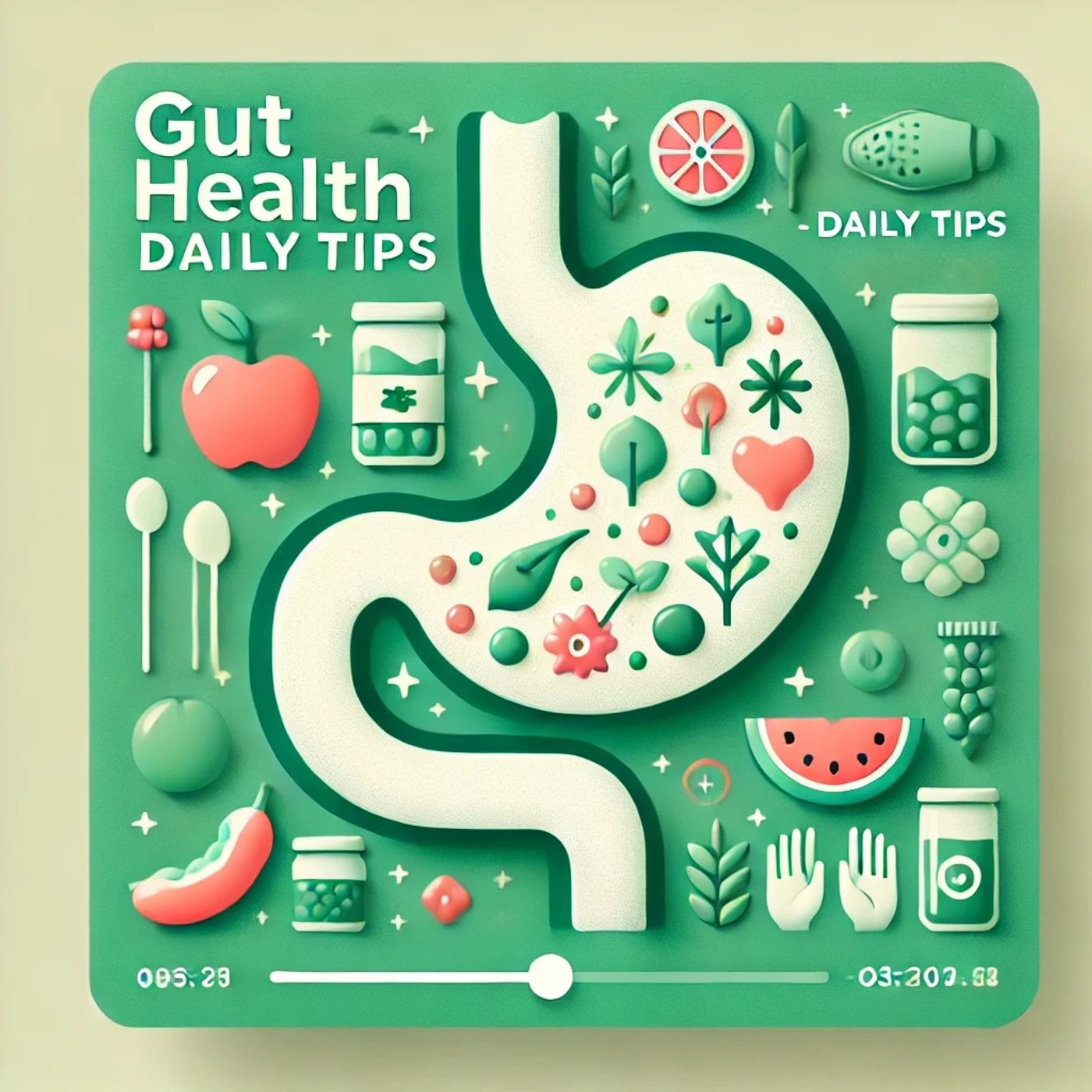Unlock the Power of Gut Health: Your Pathway to Optimal Well-being
Update: 2025-11-18
Description
Gut health has increasingly become a focal point in the discussion of overall well-being, and for good reason. The gut is often referred to as the "second brain" due to its significant impact on physical health and mental clarity. A healthy gut can boost your immune system, enhance mood, aid in nutrient absorption, and even regulate sleep.
One way to improve gut health is by embracing a diverse diet rich in fiber. Fiber plays a crucial role in the digestive process and acts as food for beneficial gut bacteria. Whole grains, fruits, vegetables, nuts, and seeds are excellent sources of fiber. Spice up your plate with an array of colors, as a varied diet supports diverse gut microbiota, which enhances resilience and adaptability.
Fermented foods are another powerful ally for gut health. Yogurt, kefir, sauerkraut, kimchi, miso, and kombucha are teeming with probiotics that help maintain a healthy microbial balance. Regular consumption of these foods can increase the number of good bacteria in the gut, promoting better digestion and reducing inflammation.
Stay hydrated, as water is essential for nutrient absorption and digestion. Proper hydration helps move food through the digestive tract smoothly, preventing constipation and maintaining an optimal environment for beneficial bacteria to flourish.
Adequate sleep and managing stress are often overlooked pillars of gut health. Poor sleep and chronic stress can disrupt the balance of gut bacteria, leading to inflammation and digestive issues. Prioritizing at least 7-8 hours of quality sleep and incorporating stress-reducing practices like meditation, yoga, or deep-breathing exercises can significantly enhance gut health.
Exercise is another powerful factor in supporting a healthy gut. Regular physical activity not only promotes a diverse gut microbiome but also improves mood and boosts immune function. Aim for at least 150 minutes of moderate exercise per week, such as walking, cycling, or swimming.
While it is important to include beneficial foods in your diet, avoiding ultra-processed foods is equally essential. Processed foods often contain additives and preservatives that can harm gut bacteria and negatively impact the gut barrier. Limiting consumption of refined sugars, artificial sweeteners, and trans fats can help maintain a healthy gut environment.
Finally, incorporating prebiotics into your diet is crucial for good gut health. Prebiotics are non-digestible fibers that feed probiotics. Foods like garlic, onions, asparagus, bananas, and legumes are excellent sources of prebiotics and can help stimulate the growth of beneficial gut bacteria.
By making conscious lifestyle and dietary choices, you can foster a robust gut microbiome that supports not only digestion but overall health and well-being. The journey to better gut health is a rewarding one, as it creates a foundation for a healthier, more vibrant life.
For more http://www.quietplease.ai
Get the best deals https://amzn.to/3ODvOta
This content was created in partnership and with the help of Artificial Intelligence AI
One way to improve gut health is by embracing a diverse diet rich in fiber. Fiber plays a crucial role in the digestive process and acts as food for beneficial gut bacteria. Whole grains, fruits, vegetables, nuts, and seeds are excellent sources of fiber. Spice up your plate with an array of colors, as a varied diet supports diverse gut microbiota, which enhances resilience and adaptability.
Fermented foods are another powerful ally for gut health. Yogurt, kefir, sauerkraut, kimchi, miso, and kombucha are teeming with probiotics that help maintain a healthy microbial balance. Regular consumption of these foods can increase the number of good bacteria in the gut, promoting better digestion and reducing inflammation.
Stay hydrated, as water is essential for nutrient absorption and digestion. Proper hydration helps move food through the digestive tract smoothly, preventing constipation and maintaining an optimal environment for beneficial bacteria to flourish.
Adequate sleep and managing stress are often overlooked pillars of gut health. Poor sleep and chronic stress can disrupt the balance of gut bacteria, leading to inflammation and digestive issues. Prioritizing at least 7-8 hours of quality sleep and incorporating stress-reducing practices like meditation, yoga, or deep-breathing exercises can significantly enhance gut health.
Exercise is another powerful factor in supporting a healthy gut. Regular physical activity not only promotes a diverse gut microbiome but also improves mood and boosts immune function. Aim for at least 150 minutes of moderate exercise per week, such as walking, cycling, or swimming.
While it is important to include beneficial foods in your diet, avoiding ultra-processed foods is equally essential. Processed foods often contain additives and preservatives that can harm gut bacteria and negatively impact the gut barrier. Limiting consumption of refined sugars, artificial sweeteners, and trans fats can help maintain a healthy gut environment.
Finally, incorporating prebiotics into your diet is crucial for good gut health. Prebiotics are non-digestible fibers that feed probiotics. Foods like garlic, onions, asparagus, bananas, and legumes are excellent sources of prebiotics and can help stimulate the growth of beneficial gut bacteria.
By making conscious lifestyle and dietary choices, you can foster a robust gut microbiome that supports not only digestion but overall health and well-being. The journey to better gut health is a rewarding one, as it creates a foundation for a healthier, more vibrant life.
For more http://www.quietplease.ai
Get the best deals https://amzn.to/3ODvOta
This content was created in partnership and with the help of Artificial Intelligence AI
Comments
In Channel





